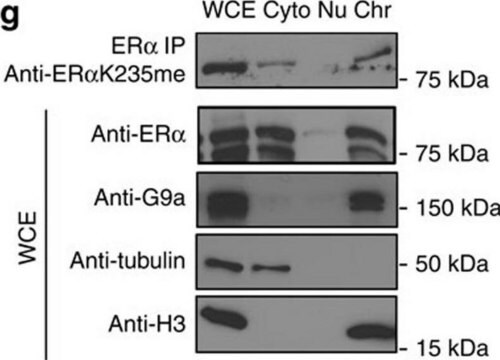431525
L-Leucine Dehydrogenase, Bacillus cereus
Sinónimos:
L-Leucine Dehydrogenase, Bacillus cereus, L-LeuDH, L-Leucine:NAD +-oxidoreductase
Iniciar sesiónpara Ver la Fijación de precios por contrato y de la organización
About This Item
Número de CAS:
MDL number:
UNSPSC Code:
12352202
NACRES:
NA.77
Productos recomendados
biological source
Bacillus sp. (Bacillus cereus)
Quality Level
form
liquid
specific activity
≥10 units/mg protein
≥50 units/mL
manufacturer/tradename
Calbiochem®
storage condition
OK to freeze
avoid repeated freeze/thaw cycles
shipped in
wet ice
storage temp.
−20°C
General description
Native L-leucine dehydrogenase from Bacillus cereus. Catalyzes the NAD+-dependent conversion of L-leucine to α-ketoisocaproate. Suitable for the production of L-tertiary leucine amino acids.
Native L-leucine dehydrogenase from Bacillus cereus. Purified enzyme that catalyzes the NAD-dependent conversion of L-leucine to α-ketoisocaproate. Suitable for the production of L-tertiary leucine amino acids. Has an optimal pH of 10.5-10.8 for L-leucine substrate and 9.4 for α-ketoisocaproate substrate. Has an optimal temperature of 65°C.
pH optimum 10.5-10.8 (L-leucine substrate) and 9.4 (α-ketoisocaproate substrate), temperature optimum 65°C.
Warning
Toxicity: Standard Handling (A)
Unit Definition
One unit is defined as the amount of enzyme that will convert 1.0 µmol L-leucine to α-ketoisocaproate in the presence of NAD+ per min at 30°C, pH 10.7.
Physical form
In 100 mM NaCl, 10 mM potassium phosphate buffer, 50% glycerol, pH 7.5.
Reconstitution
Following initial thaw, aliquot and freeze (-20°C).
Other Notes
Kärst, U., et al. 1986. FEMS Microbiol. Lett. 37, 335.
Schütte, H., et al. 1985. Appl. Microbiol.Biotechnol.22, 306.
Schütte, H., et al. 1985. Appl. Microbiol.Biotechnol.22, 306.
Legal Information
CALBIOCHEM is a registered trademark of Merck KGaA, Darmstadt, Germany
Storage Class
10 - Combustible liquids
wgk_germany
WGK 2
Certificados de análisis (COA)
Busque Certificados de análisis (COA) introduciendo el número de lote del producto. Los números de lote se encuentran en la etiqueta del producto después de las palabras «Lot» o «Batch»
¿Ya tiene este producto?
Encuentre la documentación para los productos que ha comprado recientemente en la Biblioteca de documentos.
Nuestro equipo de científicos tiene experiencia en todas las áreas de investigación: Ciencias de la vida, Ciencia de los materiales, Síntesis química, Cromatografía, Analítica y muchas otras.
Póngase en contacto con el Servicio técnico